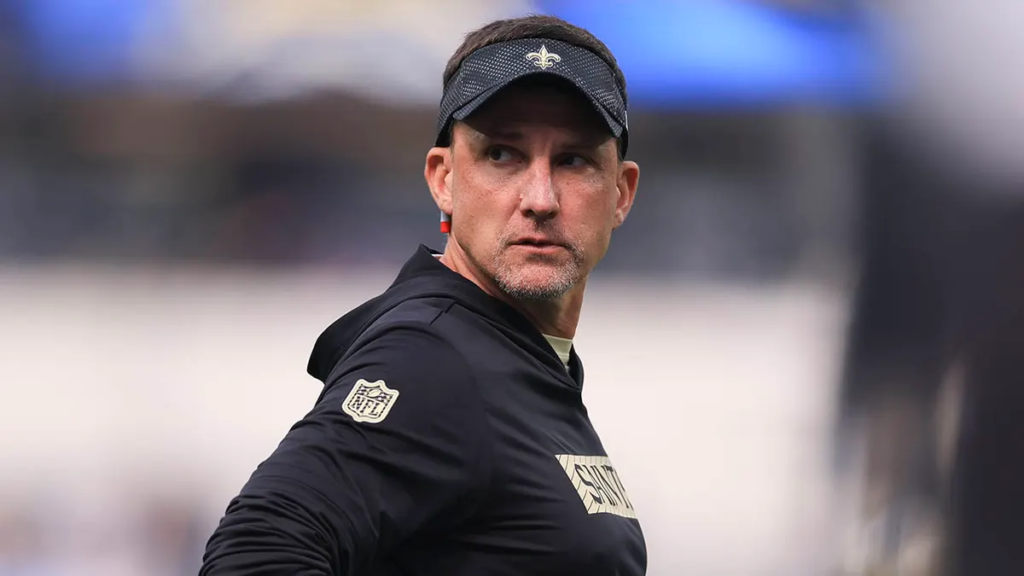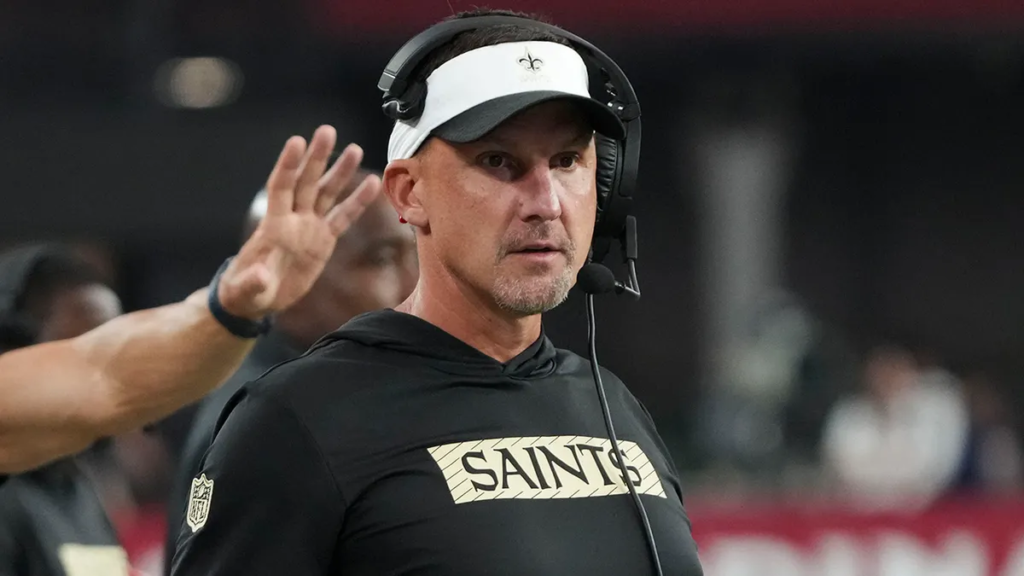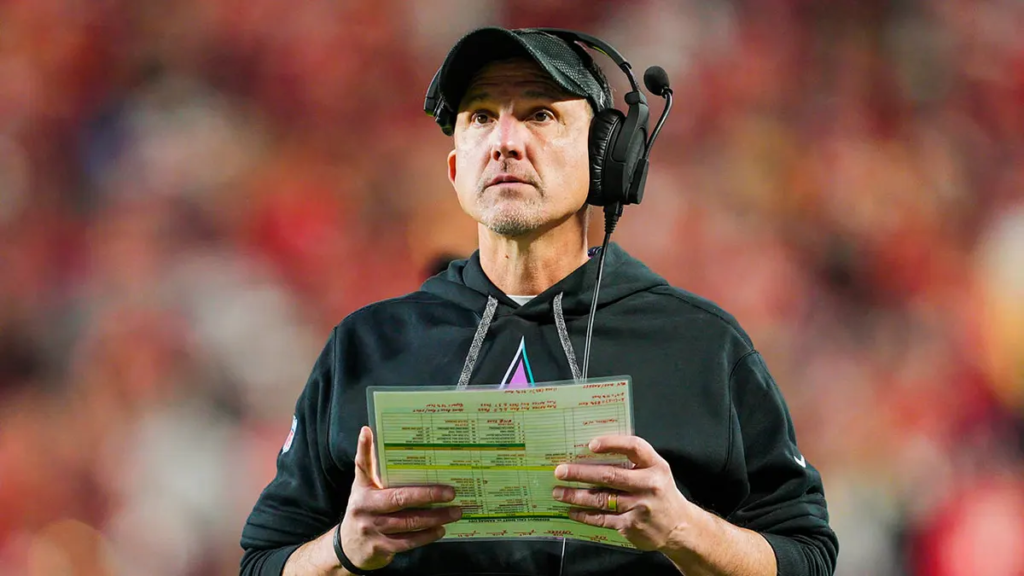Dennis Allen, born on September 22, 1972, in Atlanta, Georgia, is a prominent figure in the world of professional football. Known for his defensive expertise and leadership, Allen has built a successful career as an NFL coach, earning respect for his strategic acumen and ability to develop resilient teams. From his early days as a college athlete to his rise as a head coach, Allen’s journey is a testament to hard work, perseverance, and a deep understanding of the game. This article explores his life, career, and contributions to football.
Early Life and College Career
Dennis Allen was born into a football family. His father, Grady Allen, played as a linebacker for the Atlanta Falcons, giving Dennis early exposure to the sport. Growing up in Hurst, Texas, near Fort Worth, Allen attended L.D. Bell High School, where he excelled as a football player and developed a passion for the game.
Allen went on to play college football at Texas A&M University, where he was a safety on R.C. Slocum’s renowned “Wrecking Crew” defense. During his collegiate career, Allen demonstrated exceptional skill and leadership, starting the final 21 games of his career and contributing to a defensive unit that ranked among the top five in the nation. His standout performance included a pivotal interception in the fourth quarter of a game against rival Texas, securing an 18–9 victory for Texas A&M. Allen graduated in 1995 with a Bachelor of Business Administration in management.
Transition to Coaching

After completing his college career, Dennis Allen briefly pursued professional football, signing with the Buffalo Bills as an undrafted free agent in 1996. However, he was released during training camp, prompting him to transition into coaching. Allen began his coaching career at his alma mater, Texas A&M, as a graduate assistant from 1996 to 1999. During this time, he worked primarily with the secondary while earning a master’s degree in kinesiology.
Allen’s early coaching experience laid the foundation for his future success. He gained valuable insights into player development and defensive strategies, which would become hallmarks of his coaching style.
Rise in the NFL Coaching Ranks
Dennis Allen’s NFL coaching career began in 2002 when he joined the Atlanta Falcons as a defensive quality control coach. Over the next several years, he held various roles with the Falcons, including defensive assistant and secondary coach. His work ethic and attention to detail earned him recognition within the league.
In 2006, Allen joined the New Orleans Saints as an assistant defensive line coach. He later served as the Saints’ secondary coach from 2008 to 2010, playing a key role in the team’s defensive success during their Super Bowl-winning season in 2009. Allen’s ability to develop players and implement effective defensive schemes solidified his reputation as a rising star in the coaching world.
Defensive Coordinator Roles

Dennis Allen’s first opportunity as a defensive coordinator came in 2011 when he joined the Denver Broncos. Under his leadership, the Broncos’ defense improved significantly, showcasing Allen’s ability to transform struggling units into formidable forces. His success in Denver further established him as one of the NFL’s top defensive minds.
Head Coaching Role with the Oakland Raiders
In 2012, Dennis Allen was named head coach of the Oakland Raiders, becoming the youngest head coach in the NFL at the time. His tenure with the Raiders was marked by challenges, as he inherited a team in need of rebuilding. Despite facing adversity, Allen demonstrated resilience and a commitment to developing a competitive roster.
While his time with the Raiders was met with ups and downs, Allen gained invaluable experience as a leader under pressure. His tenure provided him with insights into the complexities of head coaching and the importance of fostering a strong team culture.
Return to the New Orleans Saints
After his stint with the Raiders, Dennis Allen returned to the New Orleans Saints in 2015 as a senior defensive assistant. He was promoted to defensive coordinator later that year, a role in which he excelled. Allen’s leadership and strategic vision helped the Saints’ defense improve significantly, contributing to the team’s success in subsequent seasons.
Allen’s ability to adapt to changing circumstances and develop effective game plans made him a trusted figure within the Saints organization. His work as defensive coordinator earned him widespread respect and recognition.
Head Coach of the New Orleans Saints

In 2022, Dennis Allen was named head coach of the New Orleans Saints, succeeding Sean Payton. This appointment marked a new chapter in Allen’s career, as he took on the challenge of leading the team in a competitive NFC South division. As head coach, Allen has focused on building a resilient and disciplined team, emphasizing the importance of collaboration and accountability.
Coaching Philosophy and Legacy
Dennis Allen’s coaching philosophy centers on discipline, adaptability, and attention to detail. He is known for his ability to develop players and create cohesive defensive units that excel under pressure. Allen’s leadership style emphasizes collaboration and trust, fostering a positive environment for both players and staff.
Throughout his career, Allen has demonstrated a commitment to excellence and a passion for the game. His contributions to the Saints’ success and his impact on the teams he has coached reflect his dedication to the sport and his ability to inspire those around him.
Personal Life
Dennis Allen is married to his wife, Alisson, and the couple has two children. Despite the demands of his coaching career, Allen prioritizes spending time with his family and maintaining a healthy work-life balance. His ability to balance his professional and personal responsibilities is a testament to his character and values.
Conclusion
Dennis Allen’s journey from a college athlete to a respected NFL coach is a story of perseverance, growth, and leadership. His ability to navigate challenges and inspire teams has made him a trusted figure in the world of professional football. As he continues to lead the New Orleans Saints, Allen’s impact on the sport remains significant, and his legacy as a coach and leader continues to grow.






